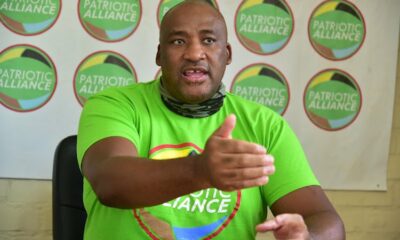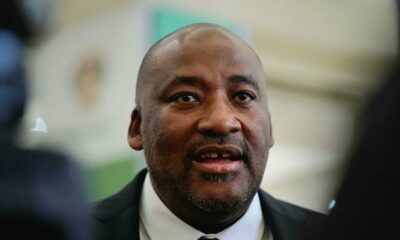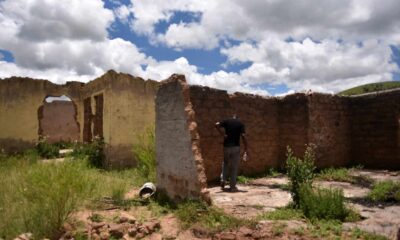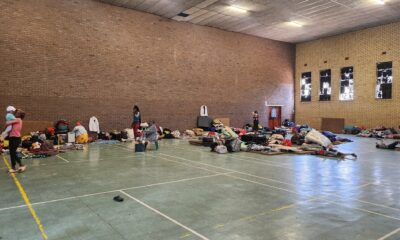News
Racism Isn’t “Open Conversation”: SA Outrage Grows Over Podcast’s Coloured Stereotypes
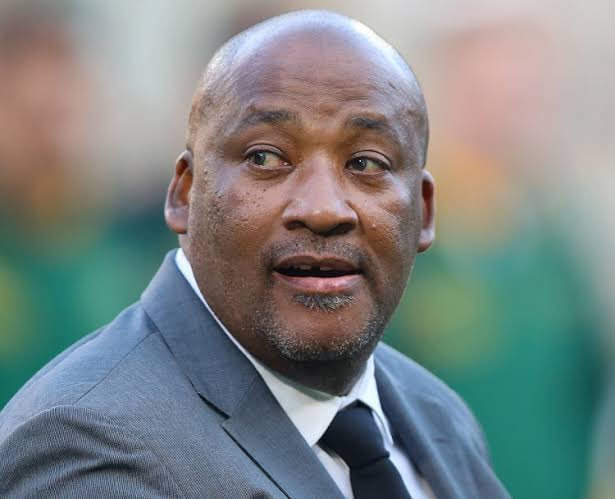
Open Chats hosts face criminal charges, Equality Court action, and a tidal wave of public fury
A clip from the “Open Chats Podcast” has ignited a firestorm across South Africa, after hosts Mthokozisi Methula and Sinothando Kama made vile and racist generalisations about the Coloured community. The fallout has been swift—and fierce.
From criminal charges to possible court proceedings, this isn’t just another social media scandal. It’s a national reckoning over what counts as “free speech” and what crosses the line into hate.
@liamjacobs.za The Patriotic Alliance is Laying Criminal Charges against the Open Chats Podcast!! Die hond is LOS! This is decisive action. This is justice. We will no longer be a punchline!! #southafricanpolitics #politics ♬ original sound – Liam Jacobs
“Enough is Enough”: Patriotic Alliance Leads the Charge
Liam Jacobs of the Patriotic Alliance (PA) walked into the Brooklyn Police Station in Pretoria this week and walked out having opened a criminal case against the podcast’s hosts. His action, caught on video and shared online, symbolised what many in the Coloured community have long felt: being tired of being a punchline.
The PA, led by Gayton McKenzie, says it’s not stopping there. In addition to laying charges, they’ve promised to:
-
Petition YouTube to remove the episode.
-
Take the case to the Equality Court for unlawful discrimination.
-
March to podcast studios and broadcasters in protest.
-
Approach the South African Human Rights Commission (SAHRC).
McKenzie minced no words:
“It has become too easy to insult Coloured people in this country. Enough is enough.”
@izaiahcarelse1 Gayton McKenzie says this is where we draw the line ‼️ open chats podcast #fyp #fypシ゚ ♬ original sound – Izaiah Carelse
The Clip That Sparked a Crisis
The viral clip features the hosts making disgusting claims, including accusations of incest within Coloured families and blanket statements about mental health.
“Coloureds apparently chow each other,” said one host.
The co-host replied, “I do believe that because Coloureds are crazy.”
Though the podcast team claims the clip was removed and apologised via social media, critics say the damage was already done and the apology didn’t cut it.
Apology Rejected
The Open Chats team posted a statement:
“The intention was never to cause harm… Open Chats is a platform centred around open conversations.”
But that apology has been widely rejected as disingenuous.
Cape Forum’s Executive Chair, Heindrich Wyngaard, called it “inadequate,” accusing the hosts of excusing their behaviour rather than owning it.
The DA’s Dr. Ivan Meyer agreed, confirming that the party has filed a formal complaint with the SAHRC:
“Hate speech, harmful racial stereotyping, and public degradation of any group cannot be tolerated.”
Social Media Reaction: Boiling Over
Across platforms like X, Facebook, and TikTok, users expressed outrage—not only at the remarks but also at how normalized such rhetoric has become.
“If this was aimed at another race group, the outrage would be national,” wrote one user.
“We’re tired of being everyone’s punching bag,” said another.
The Coloured community has historically faced marginalisation in post-apartheid South Africa, often left out of transformation narratives or lumped into crude stereotypes. This controversy has only reopened those wounds.
Cultural Context: A History of Being Spoken About, Not To
The Coloured identity in South Africa is complex, rooted in centuries of displacement, mixed heritage, and systemic exclusion, first under colonialism, then apartheid, and now often, in the democratic era.
Insults like those on Open Chats aren’t just offensive, they reinforce a long history of cultural erasure, where Coloured people are caricatured instead of being understood.
Where to From Here?
The backlash against the podcast is more than just a PR crisis. It’s a moment of accountability for digital creators who mistake virality for impunity.
It also raises important legal questions:
-
Where is the line between free speech and hate speech?
-
Who enforces it in the world of podcasts, YouTube, and influencer culture?
-
What are the responsibilities of broadcasters and streaming platforms?
As the Patriotic Alliance leads legal action and civil society voices grow louder, one thing is clear: the days of getting away with racism under the guise of “open chats” are numbered.
South Africa’s fragile social fabric relies on respect, not reckless jokes and casual racism. In a country trying to heal deep wounds, media platforms must do better, not only in what they say, but in how they respond when they get it horribly wrong.
Because “open conversation” should never come at the cost of someone else’s dignity.
{Source: IOL}
Follow Joburg ETC on Facebook, Twitter , TikTok and Instagram
For more News in Johannesburg, visit joburgetc.com

